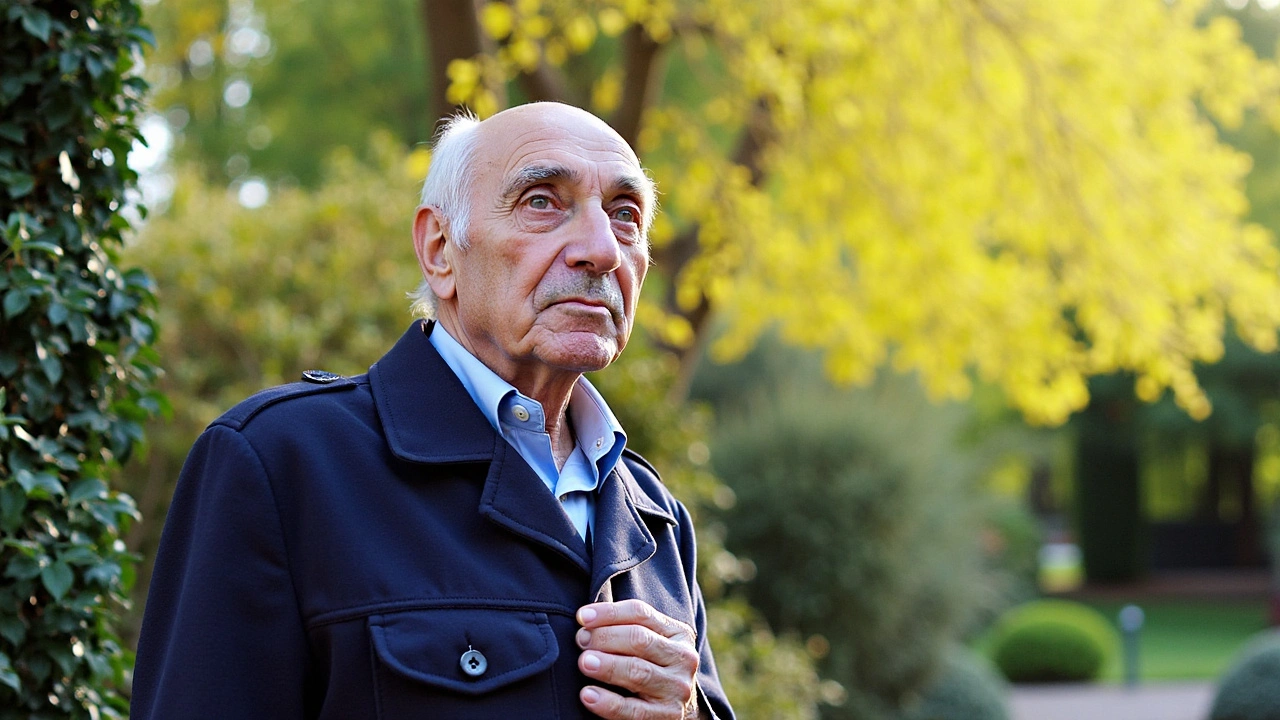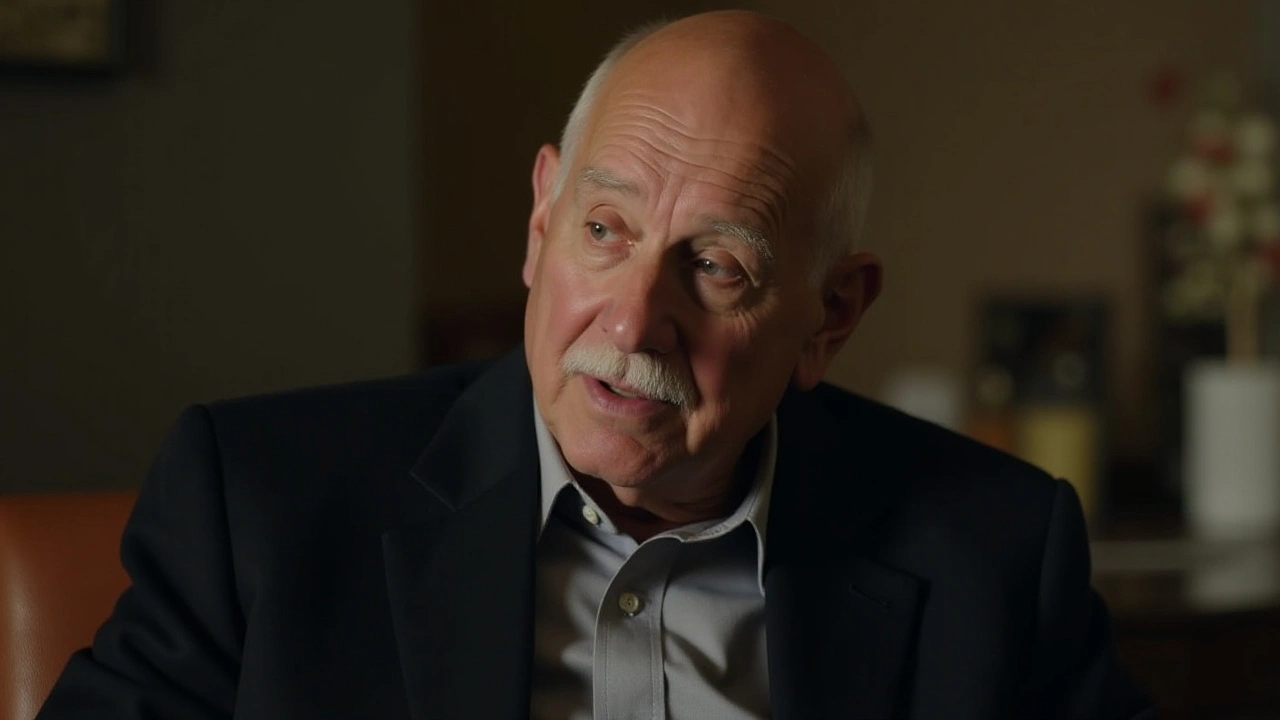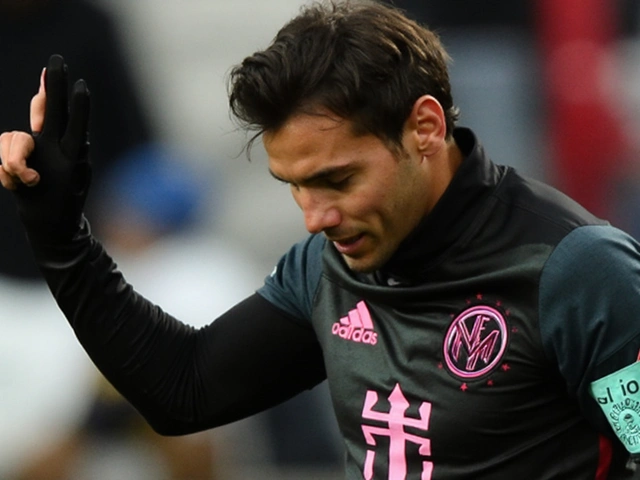Introduction to Fethullah Gülen's Life and Influence
Fethullah Gülen, a name synonymous with both inspiration and controversy, passes away at his adopted home in the United States, leaving behind a complex legacy that has sparked worldwide discussions. Born in Turkey, Gülen became a significant spiritual figure known for his thought-provoking teachings and his initiative to foster interfaith dialogue. Emphasizing education and tolerance, his ideology laid the groundwork for the vast movement that carries his name—the Gülen movement. Thousands of loyal adherents have embraced this vision, inspiring educational and civic projects worldwide.
His journey, however, has been far from smooth. Gülen lived in self-imposed exile since the late 1990s, primarily due to political tensions and fears of persecution in Turkey, where he was seen as an inspiring yet polarizing figure. Turkey's President, Recep Tayyip Erdoğan, perceives the Gülen movement as a formidable rival. This distrust culminated in allegations that Gülen orchestrated a failed coup in 2016, a charge he staunchly denied until his death at 83. Yet, his death has now unified his followers, drawing thousands to mourn his passing and celebrating his enduring legacy.
Exile in the United States
Fleeing the uncertainty in Turkey, Fethullah Gülen sought refuge in the American landscape of Saylorsburg, Pennsylvania. Here, amidst a tranquil yet modest setting, he would live out the remainder of his days, continuing his spiritual leadership from afar. The United States, often seen as a haven for those seeking asylum from political persecution, became the backdrop for Gülen's prolonged exile. While physically distant, his outreach and ideas reverberated across continents, as the movement named after him saw exponential growth, establishing institutions and gaining followers all over the world. This scenario created a duality in his life: a quiet and contemplative existence in rural America, juxtaposed against the backdrop of a highly dynamic and at times tumultuous global religious movement.
The Gülen Movement's Impact
The Gülen movement, sometimes referred to as 'Hizmet' (meaning 'service' in Turkish), reflects the embodiment of Gülen's teachings. It emphasizes the importance of education and is responsible for establishing a multitude of schools and educational facilities spanning from the Americas to Asia. These schools, admired for their quality and commitment to interfaith dialogue, have become beacon institutions adhering to Gülen's vision of fostering understanding and collaboration among different faiths and cultures. The movement's influence is palpable in many regions, where local efforts inspired by Gülen's teachings aim to improve community relations and educational standards.
Yet, its detractors and critics, particularly from the Turkish government, highlight perceived underlying motives. Allegedly infiltrating state institutions to expand influence is the suspicion cast by officials who point fingers for any underlined dissent or political shifts back towards the movement. This dichotomy has steered ongoing debates about the movement's real intentions, illustrating the broader struggle between divergent perceptions of spiritual leadership, influence, and political power.

Political Allegations and Assertions
One cannot appraise Fethullah Gülen's life narrative without acknowledging the darker chapters, particularly revolving around the dramatic events of 2016. During that summer, an attempted coup in Turkey left the nation reeling, pushing an already teetering democracy to its brink. Ankara swiftly pointed to the Gülen movement as the orchestrator of this upheaval, intensifying tensions and widening the rift between the Turkish government and Gülen's network of followers. These allegations were promptly met with flat rejections from Gülen himself, describing the accusations as baseless and politically motivated assaults on his character and mission.
The resulting crackdown by President Erdoğan affected thousands of people, with mass arrests and purges from state positions. These actions illuminated the Turkish government's increasing authoritarianism and the lengths to which it would go to silence perceived threats. Observers note how this unfolding drama demonstrated the delicate balancing act between power, influence, and governance in Turkey, positioning Fethullah Gülen squarely in the international spotlight.
Legacy and Global Mourners
Despite these controversies, Gülen's reach extended far beyond the borders of Turkey. The outpouring of grief after his death testifies to the broad spectrum of his impact. Across different continents, thousands remember him as a harbinger of peace, whose teachings enabled pathways to knowledge and the pursuit of harmony among disparate cultures and religions. Followers garlanded his memory with tributes, reaffirming their commitment to the principles he laid down. These gatherings underscored the way in which one man's teachings can touch lives and inspire actions that ripple globally, even in the face of sometimes hostile scrutiny.
His funeral became a confluence of remembrance, where family, friends, and followers congregated to offer their final respects. It was a somber ceremony, echoing far from Saylorsburg to disparate communities his influence reached. Each story shared, each memory recounted, formed a tapestry of interconnected lives impacted by Gülen's philosophies. To many, he remains a venerated figure, an advocate of education and peace, who sought to elevate humanity through understanding. Such is the abiding legacy left by a leader whose life threaded through complicated political and religious narratives.

The Future of the Gülen Movement
Looking forward, the movement faces the challenge of continuing on without its founder. Leadership transitions in such vast and ideologically-driven organizations can often be tumultuous. However, the deeply ingrained values promoted by Gülen are resilient, and it is expected that his followers will strive to preserve the core tenets embedded within the movement. As the world changes, it will be vital for the movement to adapt, ensuring that the principles of dialogue, peace, and education endure beyond its charismatic leader.
Whether the movement will continue to expand its reach or focus internally remains a narrative yet to be written. The recent focus on the movement by various international bodies may challenge or uplift its objectives, providing both obstacles and opportunities alike. Regardless, Fethullah Gülen's impact on modern religious and educational discourse remains a fascinating chapter, one that will continue to inspire scholarly discussions and influence community initiatives worldwide.






WILL WILLIAMS
October 25, 2024 AT 15:20Gülen’s legacy sparked a whirlwind of global dialogue, lighting up classrooms and coffee shops alike!
Barry Hall
November 9, 2024 AT 21:00Respect the influence, but keep the politics in check :)
abi rama
November 25, 2024 AT 03:40The movement’s focus on education really resonates across borders.
It reminds us that learning can bridge deep divides.
Even amid controversy, many find hope in the schools established under Gülen’s vision.
That hopeful thread is worth nurturing.
Megan Riley
December 10, 2024 AT 10:20Hey folks, let’s take a moment to appreciate the way Gülen’s ideas have cultivated bridges-between cultures, between faiths, and even between skeptics!!!, it’s truly a tapestry, woven with care-though some still debate the nuances, we can still celebrate the spirit of learning, it’s a powerful reminder that education can be a balm, even when the headlines are stormy, so keep the conversation alive, and keep supporting those schools, they’re doing amazing work, definately worth our attention.
Lester Focke
December 25, 2024 AT 17:00One must consider the epistemological scaffolding upon which the Gülen movement erected its educational paradigm. The founder’s articulation of a syncretic pedagogy intertwines theocratic reverence with secular rigor, thereby engendering a unique didactic model. This model promulgates transnational curricula that eschew parochial nationalism in favor of cosmopolitan humanism. Moreover, the organizational architecture exhibits a decentralized network, allowing local affiliates to adapt curricula to indigenous contexts while adhering to a core philosophical canon. Such flexibility has facilitated the rapid proliferation of institutions across continents, from Anatolia to the Americas. Critics, however, contend that this diffusion masks covert ideological infiltration, a claim that warrants meticulous scrutiny. Nevertheless, empirical assessments of academic outcomes reveal statistically significant improvements in standardized assessments among participating schools. These data points substantiate the assertion that the movement’s educational interventions possess substantive merit. In the geopolitical sphere, the movement's emphasis on interfaith dialogue has engendered dialogic spaces seldom encountered in polarized milieus. By fostering conversational reciprocity, it mitigates sectarian tensions and promotes a pluralistic civic ethos. The juxtaposition of spiritual discourse with pragmatic scholarship epitomizes a holistic approach to human development. It is imperative, therefore, to distinguish between legitimate pedagogical innovation and politicized appropriation. Historical precedents illustrate that reformist currents often attract state suspicion, irrespective of altruistic intent. While the Turkish government's accusations of subversive activity remain contested, they must be evaluated against the backdrop of broader authoritarian impulses. Ultimately, the durability of the movement rests upon its capacity to evolve beyond the charismatic founder, institutionalizing governance structures that ensure continuity. Should such institutional maturation succeed, the legacy of Fethiyat Gülen will endure as a testament to the transformative power of education.
Naveen Kumar Lokanatha
January 9, 2025 AT 23:40Thanks for the deep dive, the points about flexibility and outcomes are spot on but we also need to remember the human stories behind the numbers the schools really do make a difference in many villages even if data sometimes gets lost in the debate.
Alastair Moreton
January 25, 2025 AT 06:20Sounds like another overhyped nostalgia tour for a controversial figure.